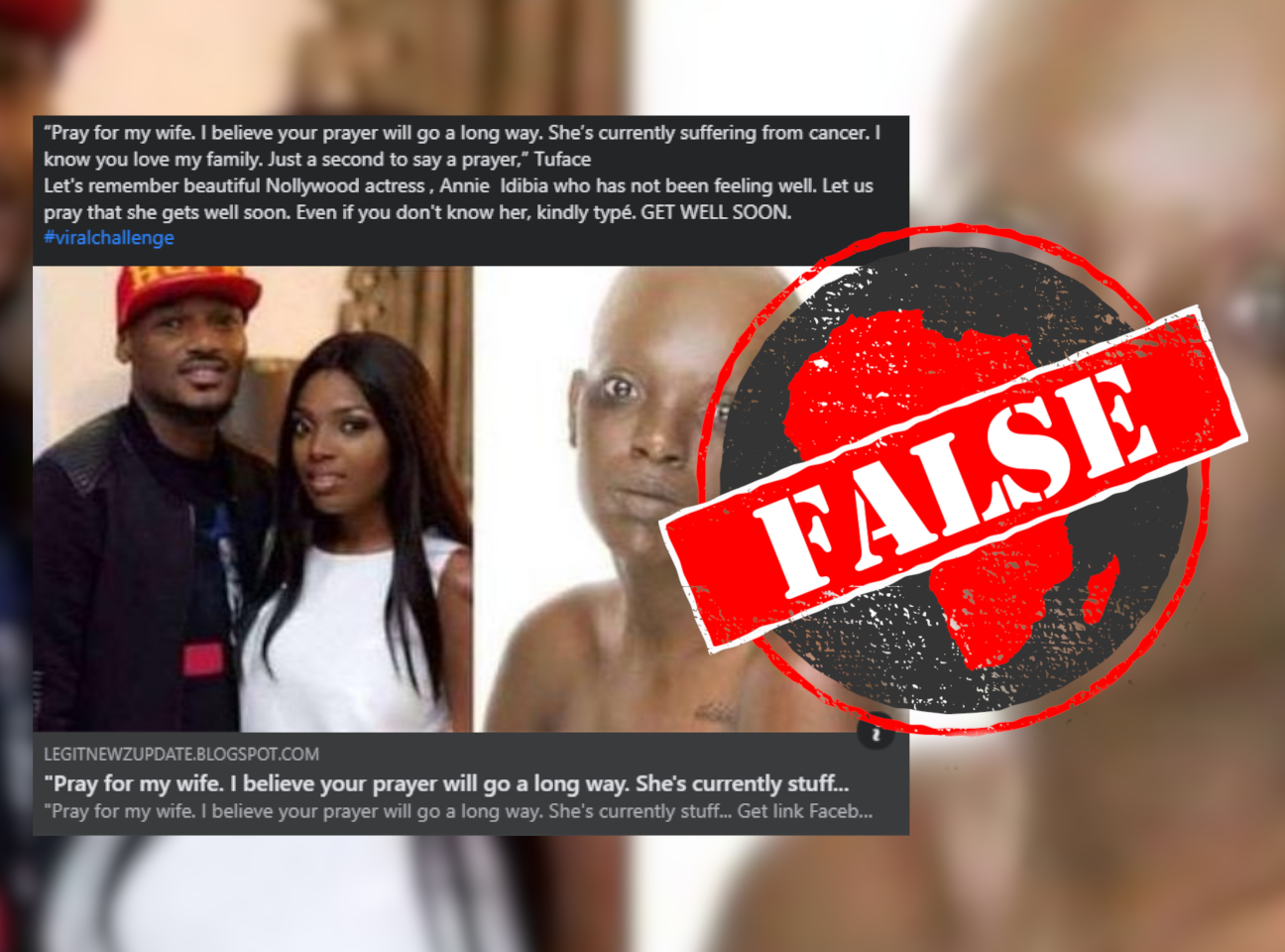IN SHORT: Nigerian actor Annie Idibia went bald for a cancer awareness campaign. Images from that campaign have been circulating online, with claims that she has cancer. This is not true.
A post on Facebook quotes legendary Nigerian singer Innocent Idibia, also known as Tuface, saying his wife Annie Idibia has been diagnosed with cancer.
“Pray for my wife. I believe your prayer will go a long way. She’s currently suffering from cancer. I know you love my family. Just a second to say a prayer,” Tuface Let's remember beautiful Nollywood actress , Annie Idibia who has not been feeling well. Let us pray that she gets well soon. Even if you don't know her, kindly typé. GET WELL SOON #viralchallenge,” the post reads.
Idibia is popularly known for his song African Queen, in which he features his wife. Annie is an actor and reality TV star who has featured in productions such as Blackberry Babes (2011), Nkoyo (2021) and Almajiri (2022).
Among other African stars, the couple featured in the Netflix reality TV series Young Famous and African.
The Facebook post includes two images of the couple in a collage. One appears to show Annie without any hair. People who undergo chemotherapy as treatment for cancer often lose their hair.
The claim appeared elsewhere on Facebook here, here, here, here and here.
But is the claim about the actor true?

Click bait for money or engagement
The Facebook post does not link to any article and gives no details on where or when Idibia announced his wife’s cancer diagnosis.
Instead, it asks people to type “get well soon” in the comment section and includes a link that directs users to a page with a quick response code, with the instruction to “scan to download app”.
This is a classic example of engagement bait. The more people comment and interact with the post, the further its reach.
There are also no reports of Annie’s cancer diagnosis in the media, which would have been the case if the claim was true.
In August 2020, she debunked a similar claim about her health. She said the picture of her without hair, circulating with claims that she has cancer, was from a photoshoot campaign where she was transformed into a bald woman.
Annie does not have cancer and claims that she does are simply engagement bait.
Republish our content for free
For publishers: what to do if your post is rated false
A fact-checker has rated your Facebook or Instagram post as “false”, “altered”, “partly false” or “missing context”. This could have serious consequences. What do you do?
Click on our guide for the steps you should follow.
Publishers guideAfrica Check teams up with Facebook
Africa Check is a partner in Meta's third-party fact-checking programme to help stop the spread of false information on social media.
The content we rate as “false” will be downgraded on Facebook and Instagram. This means fewer people will see it.
You can also help identify false information on Facebook. This guide explains how.


Add new comment